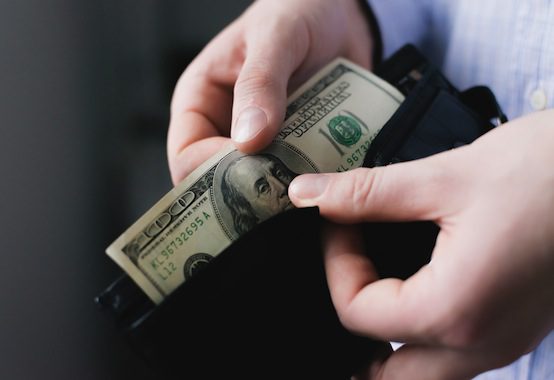Should We Get Rid of Cash?

The ability to buy things online has replaced cash, almost entirely, for many people. But is it the best way to make purchases? Should it be the only way? Some think so—as Conor Friedersdorf noted in a Friday story for The Atlantic, a handful of journalists and economists have argued that disposing of cash would be “simple and elegant.” But ease and comfort are not the only things worth considering in the cash debate. The efficiency of technological payment can also be detrimental:
Federal, state, and local law enforcement, as well as tax authorities, want to bring as much of the economy under their direct supervision as possible. … Forget folks who like cash. Never mind worries about forcing us all to run all spending through a corrupt corporate-banking system. Never mind the resilience of having a medium of exchange in the non-digital world that works when the power grid is down, when one’s smart phone is dropped in water, when one’s identity is stolen by hackers, or one’s account frozen by Visa or Bank of America because a purchase on vacation was deemed suspicious.
Friedersdorf believes the elimination of cash could have drastic implications for financial privacy. He points to Supreme Court case U.S. v. Miller:
There is no legitimate “expectation of privacy” in the contents of the original checks and deposit slips, since the checks are not confidential communications, but negotiable instruments to be used in commercial transactions, and all the documents obtained contain only information voluntarily conveyed to the banks and exposed to their employees in the ordinary course of business.
Credit and debit cards also have personal spending implications, as Derek Thompson wrote last year. “Cash and coins must be considered, handled, counted, organized, re-counted, negotiated into the small space of a palm, and delivered cleanly to a merchant,” he wrote. “Each of these verbs represents an inconvenience — a point of friction. But a card is just a card. Pull, swipe, finished. It’s so easy to spend whatever we want.” And we do spend whatever we want, according to Thompson—research shows that people with credit cards spend more money overall than those who use cash: “literally, there are hundreds of studies on the effect of credit cards on spending, and the vast majority of them find that, all things equal, we put more on plastic.”
Take Amazon, for example: it saves your card information, your shipping and billing addresses, your spending preferences. Purchases can be made with an almost frightening ease: no need to count out the bills and dimes from your wallet—with a click of your mouse, the purchase is made.
None of these arguments necessitate that we throw away debit and credit cards. But they do remind us of the advantages that cash offers. While it may be a slower, more frustrating method of payment, it also encourages “private, peer-to-peer transactions,” as Friesdersdorf puts it, and thus “decentralizes power in society.” It also encourages us to be more frugal—it’s harder to part with money when you can feel it in your hand.
Another note: cash and coin are perhaps some of the best symbols of national individualism in our increasingly global society. The character of a nation shines through its currency: whether it be a yen, shilling, nickel, or lira. They encapsulate a place’s politics, culture, and history. If we get rid of cash, we lose that history.
This isn’t to negate the obvious benefits of our financial technology. It’s an important tool—one that most Americans benefit from on a daily basis. The question, however, is whether this is the best and only way to do our shopping. And Friedersdorf is right: cash is something that many people appreciate, something that is less centralized and more personalized, something that doesn’t leave a footprint in the system. It makes sense that, even as online payment methods grow in popularity, we hold onto the dollars in our wallets. They haven’t outlived their usefulness yet.
Comments